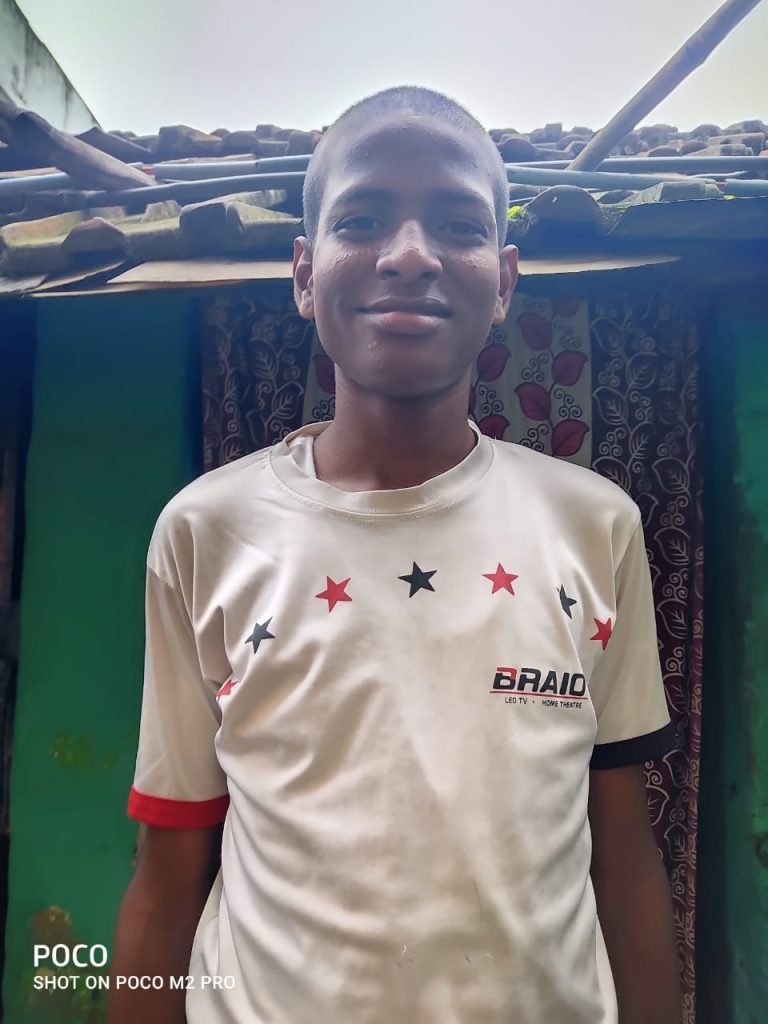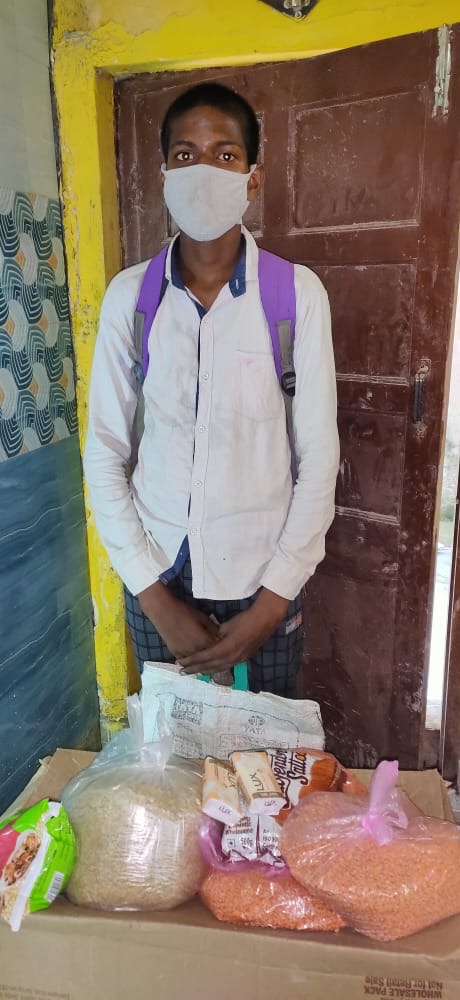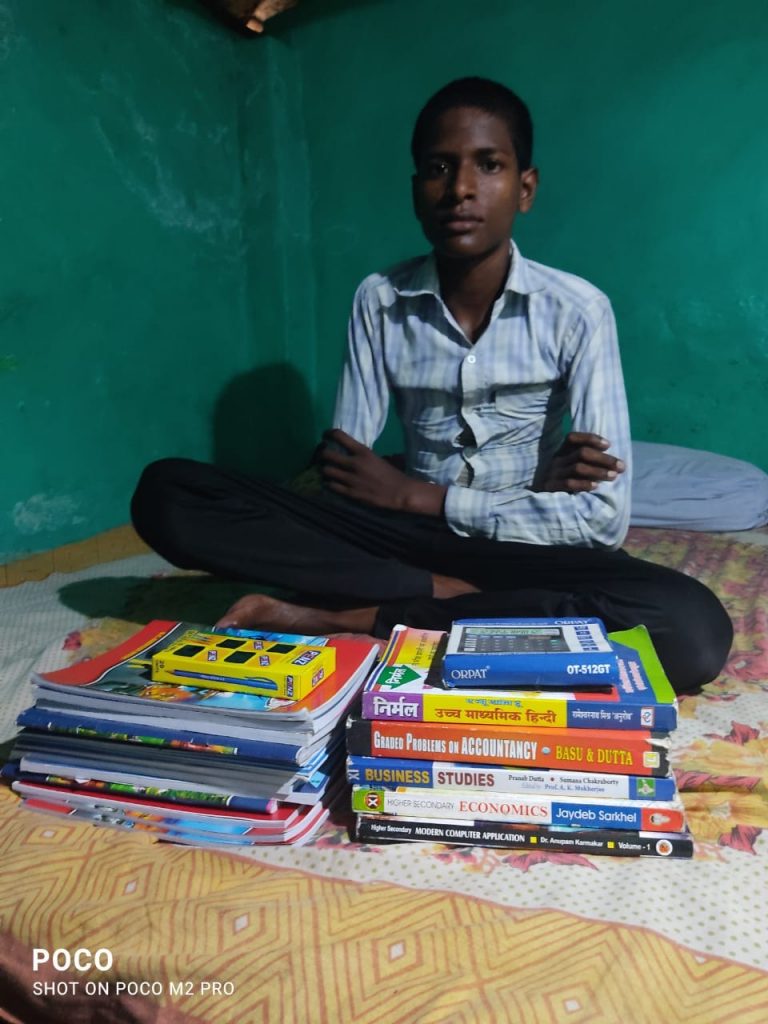This is Bhola. He is 16 years old and lives in the Topsia canalside squatters, a row of shacks built on a spit of land in the middle of an open sewer in central Kolkata. There are two fresh water taps for the 710 families in this community. The water flows for a couple of hours twice a day. Keeping clean and having access to clean drinking water involves queuing and frequent arguments.

Bhola’s family are destitute. His mother earns Rs500 (less than £5) a month as a tailor and his father, normally a driver, recently broke his leg and has lost his job. The family of 4 has depended on food parcels from Tiljala SHED through lockdown.

It would be regarded as normal for a boy in Bhola’s circumstances to have dropped out of school and found some low paid labouring work to support the family. But Bhola is a bright boy and is determined to do better for his family.

This week Bhola was able to buy books so that he can continue his studies
He is a member of Tiljala SHED’s “Topsia Evening Class”, set up 3 years ago to provide educational support and encouragement to secondary school youngsters at risk of dropping out of education.
This cohort of young people has become a close knit, hard-working, socially aware and determined group. Bhola and four others passed their class X public exams this year. This is unheard of in a community like this. He wants to become an accountant.
It is a commonplace in the aid world that donor money is best spent on the girl child or on empowering women. And there is good reason for this. However, I have known many many young men who have embraced the help they have received and have gone on to play important roles in civil society. They are financially independent, good fathers and often give back to the aid sector that helped them. And as one researcher reminded me about these communities, these are the boys that the girls will marry.
I also observe the children’s parents. The fathers are often broken by poverty: hard labour as rickshaw drivers, in factories and on building sites ruins their bodies. Soon they cannot work and are unable to support their families. Many turn to cheap hooch and domestic violence ensues. Family breakdown is common. The women work tirelessly to hold the family together. It’s a depressing story that repeats and repeats.
Bhola aims to break the cycle, but he is in a terrible position. School is closed because of COVID. He wants to learn but can’t even access the online classes. The family is hungry – it must be terrible for him.
But we can help. In September, through Global Giving’s Little by Little campaign, we raised enough funds to provide Bhola and 19 other members of the Topsia Evening class with smartphones and data packs. A small monthly contribution will provide Bhola with all the books and stationery that he needs. It will help keep the Evening Class going and give Bhola access to teachers, career counselling, extra tuition, food rations and moral support.
If you would like to sponsor a young person like Bhola, a monthly donation of £30 covers all his education expenses. A further £15 provides a food parcel for his whole family. Knowing he has a sponsor in a far-off land will give a youngster like Bhola tremendous motivation to keep going. It is terribly difficult to resist the downward pull of poverty in a marginalised community like this. But I know it is possible.
Bhola is 16 years old. He lives in the Topsia canalside squatters, a row of shacks built on a spit of land in the middle of an open sewer in central Kolkata. There are two fresh water taps for the 710 families in this community. The water flows for a couple of hours twice a day. Keeping clean and having access to clean drinking water involves queuing and frequent arguments.
Leave a Reply